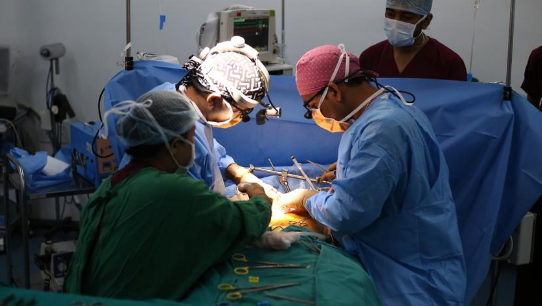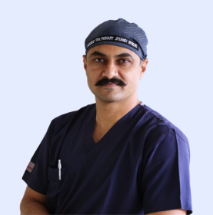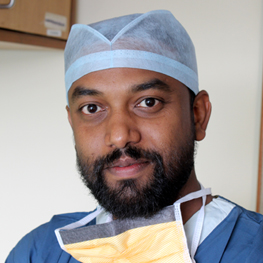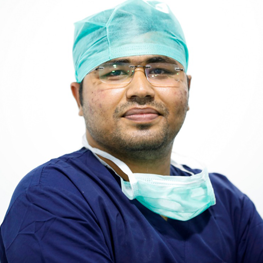Pravin Patole (Transplant Year: 2021)
Treatment : Liver Transplant
Saket Khadakkar (Transplant Year: 2021)
Treatment : Liver Transplant
Pravin Patole (Transplant Year: 2021)
Treatment : Liver Transplant
Saket Khadakkar (Transplant Year: 2021)
Treatment : Liver Transplant
Pravin Patole (Transplant Year: 2021)
Treatment : Liver Transplant
Saket Khadakkar (Transplant Year: 2021)
Treatment : Liver Transplant
Error: Contact form not found.

Hepato-pancreato-biliary (HPB) surgery consists of the general surgical treatment for benign and malignant diseases of the liver, pancreas, gallbladder, and bile ducts. The name of the surgery itself may sound like a mouthful. Therefore, for the remainder of this blog, we will be using the abbreviation ‘HPB’ when referring to this surgery which caters to the benign and malignant diseases that breed in one’s liver, pancreas and biliary tree. A bilary tree consists of the gallbladder and bile ducts.
Together, the above-mentioned lot is responsible for over 3600 functions in the body. This is why the absolute necessity to eliminate all the problems in this organ system arise.
Skim through this HPB guide that covers every important aspect of this disease, its causes, symptoms and Treatments.
The HPB surgical procedure will work to eliminate medical conditions such as:
● Primary liver cancer
● Liver tumor removal –
The most common liver tumor to metasize in this organ is known as colorectal cancer which can be cured only after the complete surgical removal of the disease.
Another metasizing tumor in the liver is the neuroendocrine tumor of the gastrointestinal tract.
● Benign and malignant diseasesin the pancreas –
Pancreatic tumors are common but the development of neuroendocrine tumors of the pancreas as well as cystic tumors is also common.
Surgical removal of all pancreatic malignancies poses a cure for all the patients affected.
When the tumor is located at the head of the pancreas, a Whipple resection and a blood vessel reconstruction may be called for. You can read more about the Whipple procedure in another blog of ours.
As for the removal of tumors located in the body and tail of the pancreas, minimal techniques will be used to rid the patient of this ailment. This surgical procedure is known as distal pancreatectomy.
● In many cases, patients may have to have their bile ducts reconstructed entirely. This will depend on the extent of damage that the tumor has done up until that point and whether the tumor is blocking the bile duct or not.
● Gallstones (tiny particles that get lodged in the gallbladder)
To better understand HPB surgery, envision it as being a humongous tree with its branches acting as the cures for the various hepato pancreatobilarydiseases it treats.
Certain procedures have been applauded for mitigating the inconveniences caused by the above conditions. They are:
● Ablation therapies in which heat is transported through a small tube to kill the tumors
● Resections that involve cutting out a deceased portion of an organ. We have discussed liver resection/ hepatectomies at length in this blog which you can peruse here.
● Irreversible electroporation or IRE which uses jolts of electricity so that they can poke holes in the pancreas or the liver to decimate the tumor
The diagnosis for each disease is different. When carrying out an HPB surgery, the following medical tests for the respective diseases shall be carried out:
i. LIVER DISEASE: Liver-function tests, Ultrasound
ii. ADVANCED LIVER DISEASE: Fibroscanor Acoustic Radiation Force Impulse Imaging (ARFI)
iii. LIVER CANCER: CT scan, MRI, Tumor markers
iv. ACUTE PANCREATITIS: CT scan, S. Amylose, Endoscopic Retrograde Cholangio Pancreatography (ERCP)
v. CHRONIC PANCREATIC DISEASE: CT scan, Endoscopic Retrograde Cholangio Pancreatography (ERCP)
vi. PANCREATIC CANCER: CT scan, Endoscopic Retrograde Cholangiopancreatography (ERCP), Tumor markers, Endoscopic Ultrasound (EUS)
vii. BILE DUCT OBSTRUCTION: Magnetic Resonance Cholangiopancreatography (MRCP), Endoscopic Retrograde Cholangio Pancreatography (ERCP), Endoscopic Ultrasound (EUS), Ultrasonography
viii. BILE DUCT CANCER: Magnetic Resonance Cholangiopancreatography (MRCP), Endoscopic Retrograde Cholangio Pancreatography (ERCP), Endoscopic Ultrasound (EUS), CT scan
Symptoms for all the above diseases can be delayed, meaning that they may show up in patients when it is too late. There are going to be several distinguished surgical centers which will rule out the possibility of you undergoing HPB surgery or catch the symptoms when they have not had ample time to harm all your vital organs.
Hence, start seeing routine-health checkups as a necessity instead of a nuisance.
It is no secret that complications are associated with every other surgery. And, obviously, there are several complications which can arise due to this already-challenging surgery. They have been categorized according to each disease:
● Fear of hemorrhage during liver surgery as there could be delays in sealing the liver tissue
● The complexity of the organ location and the fact that there are multiple channels to transport digestive juices, bile and blood during any pancreatic disease surgery
● Postoperative complications such as wound infections in young patients but elderly patients especially
NOTE OF REASSURANCE: It may not seem like it but since this surgery is minimally non-invasive, it will not be as risky as some may make you believe.
Of course, you must believe in the higher powers as well as your designated surgeon so that they can improve the quality of your life by operating on you successfully. For the best medical services, you can even contact a hepato pancreatobilary surgeon from Pune!
Don’t forget that to undertake such a monumental surgery, a team of highly-skilled surgeons will meet with each other in a sort of conference to draw up a treatment plan and decide the best course of operation for you.
The confluence of individuals present could include the general surgeon, medical oncologist, interventional radiologist, radiation oncologist, diagnostic radiologists and nurses.
In almost all cases, something known as the Enhanced recovery after surgery (ERAS) program will be initiated during the recovery period. This protocol is said to be a framework that is developed at the patient’s preoperative stages so that they do not have to endure bouts of pain and misery right after the operation.
The Enhanced Recovery After Surgery (ERAS) Study Group has been developing the main protocol consisting of 24 evidence-based core items since 2001. Yet, it continues to remain a recent phenomenon in the medical field with which medical professionals interact and experiment with almost daily.
If you are a patient who is lined up to undergo this surgery or if you are their family member, there’s good news regarding this cryptic surgery and it is that over the years, its mortality and morbidity rates have reduced remarkably.
Recovery warrants for adequate pain control after the surgery so that the patient does not feel uncomfortable or lost. The antithesis of this will result in a neuroendocrine stress response which is never ideal for a patient who has just undergone this surgery.
As medical science takes giant leaps every day, it has also discovered new pain control methods for HPB surgery.
Your doctor or their team should also not prescribe you opiates because they may result in chronic opiate dependence.
After undergoing this tremendously difficult surgery, you as a patient or someone you know who is going to be a patient will be advised to go on an oral liquid diet and soft diet.
As for the prerequisites, there will surely be a dietician/nutritionist who will guide you more about the after-surgery diet.
If you are going to be up for the HPB surgery soon, make an honest effort to stay fit and active before it happens.
Hope for the best too as this surgery is medically modernized and the surgeons conducting it only want the best outcomes for you.
A liver transplant is an operation that involves the replacement of a patient's diseased liver with either a whole or partial healthy liver from a donor.


Asst Consultant Liver & Multiorgan Transplant

Liver and Multi Organ Transplant

Consultant Liver Transplantation Anaesthesia & Critical Care
[dica_divi_carousel show_items_desktop="1" show_items_tablet="1" advanced_effect="1" arrow_nav_color="#939393" arrow_bg_color="rgba(0,0,0,0)" use_prev_icon="on" prev_icon="%%179%%" use_next_icon="on" next_icon="%%180%%" arrow_font_size="21px" module_id="Docter-slider" _builder_version="4.4.9" title_font="Cabin|600|||||||" title_font_size="17px" subtitle_font="Cabin||||||||" subtitle_font_size="12px" background_enable_color="off" hover_enabled="0" template_type="module" subtitle_line_height="22px"][dica_divi_carouselitem title="Dr. Bipin Vibhute" sub_title="Liver & Multiorgan Transplant Surgeon" button_text="Know More" button_url="https://thelivertransplant.com/dr-bipin-vibhute/" button_url_new_window="1" image="https://thelivertransplant.com/wp-content/uploads/2020/05/Mask-Group-460-1.png" content_padding="7px||10px||false|false" _builder_version="4.4.9" header_font="Circular-Std-Medium|300|||||||" header_text_align="left" header_text_color="#ffffff" header_font_size="18px" subtitle_font="Circular-Std-Medium||||||||" subtitle_text_align="left" subtitle_text_color="#ffffff" subtitle_font_size="16px" background_color="#292C6E" background_enable_color="on" custom_button="on" button_text_size="13px" button_text_color="#ffffff" button_border_color="rgba(0,0,0,0)" button_font="Cabin||||||||" button_use_icon="on" button_icon="%%190%%" button_icon_placement="left" button_on_hover="off" button_alignment="left" hover_enabled="0"][/dica_divi_carouselitem][/dica_divi_carousel]
A liver transplant is an operation that replaces a patient’s diseased liver with a whole or partial healthy operation that replaces.
Pravin Patole (Transplant Year: 2021)
Treatment : Liver Transplant
Saket Khadakkar (Transplant Year: 2021)
Treatment : Liver Transplant
The biggest donation in this world is Organ Donation, by which we can save multiple lives. To save someone’s life is the biggest thing in this world. Being a donor is like having superpowers. By donating organs you give hope or a chance of living to a person who has left all the hopes of surviving.
Even if a person dies, his organs are not dead. The organs of a dead person will be of no use after the body is burnt or buried. But these organs can save up to eight lives if we donate them. We all understand the importance of Organ Donation, but how many of us support and wish to donate our organs.
Out of the various organs in a human body, the liver performs some of the most important functions. This includes processing the good nutrients and passing it to the...
NASH is a liver condition in which excess liver fat leads to inflammation. This will result in the development of liver scarring that will further lead to cirrhosis and...
Indeed, certain lifestyle choices have a major effect on your body, and that leads to further complications. One of the most common ones includes obesity, which results...
The cost of a pancreas transplant in India generally ranges from ₹7.95 lakhs to ₹15 lakhs, depending on the hospital, type of transplant, and individual patient needs....
Pancreatic Cancer refers to the abnormal growth of malignant cells. It is characterized by the aberrant proliferation of malignant cells in the pancreas, which...
Blog Category : Pancreatic TransplantA pancreas transplant is a surgery that involves the placement of a healthy pancreas of the donor into an individual (recipient)...